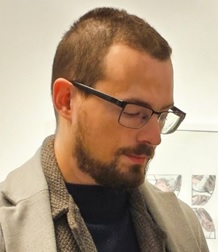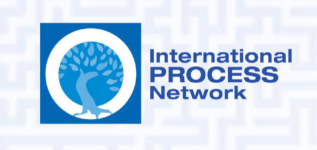STUDENT / EARLY CAREER RESEARCHER

STUDENT OR EARLY CAREER RESEARCHER IN PROCESS PHILOSOPHY PROFILE
In this section, we would like to promote student and early career researchers’ projects in process philosophy. It is important for us to encourage new faces to pursue their interest in process thought and help them spread the word about their research. This also helps us see where the new research in process thought is heading.
If interested in sharing your research in process philosophy with us, contact Veronika Krajíčková at krajickova@ff.jcu.cz
GENERAL INFORMATION
Full name: Milovan Novaković, Ph.D. candidate
University affiliation: Ph.D. candidate at the Faculty of Media and Communications, Singidunum University, Belgrade, Serbia
Country of origin/permanent residence: Montenegro
Email: milovannvkvc@gmail.com
Academic profile: https://singidunum.academia.edu/MilovanNovakovic

QUESTIONS:
Could you describe your project and explain how it engages with process thought?
Currently, I am in the process of writing my Ph.D. dissertation with the title “The Role and Notion of Rapport in Henri Matisse, D. H. Lawrence, and A. N. Whitehead.” In this work, I explore the concept of rapport, which refers to a feeling-based relationship, as an alternative to the conventional understanding of relation in the history of philosophy.
Traditionally, relation has been regarded as having minimal reality, as ens minima, being seen mainly as an attribute of a substance or a subject, or as a purely mental construct in modern philosophy. However, I argue that during the 18th century, the notion of relation began to be conceptualized as a real and influential force that fundamentally shapes entities. It is not something that comes after them but rather forms the basis of their constitution.
The term rapport, derived from Latin meaning transference or transmission, is a Mesmerist term that describes how entities dissolve their fixed boundaries and engage in a shared experience of mutuality. I view the concept of rapport as a more suitable alternative to the rigid and substance-based notion of relation in traditional philosophy. It is a concept that can also be found, under different terms, in later philosophies such as William James’ (felt relations) and scientific theories like Lotze’s (sympathetischen Rapports), which prioritize relatedness as being integral to substance or its constitution.
From the 18th century onward, there existed a line of thought that emphasized immediate, physical, and direct relationships based on feeling as the driving force of the universe. This perspective was not limited to philosophy but also permeated art and literature. The three authors I focus on in my dissertation, Matisse, Lawrence, and Whitehead, are to me exemplary representatives of this relational and process-driven line of thought.
Where did you get the idea to pursue this research?
I developed my idea through extensive research spanning years in the fields of art theory/history, literature, and philosophy. Throughout my investigations, I delved into the works of three figures who deeply resonated with me personally: Matisse, Lawrence, and Whitehead. It was during these separate explorations that I uncovered a profound connection that tied them together. With this realization, I decided to focus my topic on the concept of rapport – a concept I saw as crucial in each of them.
How did you get interested in process philosophy for the first time?
My exploration of phenomenology initially led me to thinkers such as Bergson, James, Peirce, Dewey, and Whitehead, and I found a deep resonance with their ideas. Presently, I feel their philosophies are closer to me than any other philosophy. However, this does not imply that I ceased exploring other avenues of thought after the discovery of these figures.
Why are you intrigued by process thought? How does it speak to you personally?
As a practicing painter, I have always considered process and contingency to be essential, even before I encountered process philosophy. So no wonder reading works by Bergson, James, Peirce, Dewey, and Whitehead immediately captivated my interest since those thinkers considered reality almost in artistic terms, as a process, experience, change, creativity, feeling, rhythm, expression, immediacy, etc. Moreover, I feel process philosophy (and pragmatism as well) offers a broad enough perspective that is not doomed to ossification and dogma.
What is the status of process thought in your country? Have you had any problems using it as the critical lens for your research?
In Montenegro, a small Balkan country where I reside and work, there is a notable lack of support for philosophical research in general. The existence of only one philosophy department, where a primary focus is on Byzantine patristic thought, necessarily reflects the absence of pragmatic philosophy, radical empiricism, and process philosophy within the academic landscape.
I want to add that process thought remains virtually unknown throughout the entire ex-Yugoslav region. While Whitehead is occasionally mentioned in more recent studies influenced by Deleuzian thought (and often with numerous factual mistakes, due to overgeneralization of Whitehead’s thought), there are no separate studies specially dedicated to his philosophy. Furthermore, the available translations of several Whitehead’s books (such as The Concept of Nature, Science and the Modern World, and Process and Reality) suffer from imprecision and a lack of comprehension by the translators regarding Whitehead’s philosophy and his terminology.
However, despite these challenges, my Ph.D. thesis was warmly received at the Faculty of Media and Communications in Belgrade, Serbia. This faculty stands out as an open-minded institution and potentially the only place within the region where a dissertation on such a theme could be properly prepared.
Are you a member of any societies such as International Process Network or European Society for Process Thought?
No, I am not a member of the aforementioned societies.
Do you attend conferences of summer schools organized by these societies? Does your institution help you fund these participations?
I have not participated in conferences organized by these societies. As an independent and self-funded student researcher, with limited resources, I am committed to financing all of my research and personal work.
Have you encountered any problems in pursuing your research as a student/early career researcher?
One ongoing challenge I face is the constant search for relevant sources and books to support my research. Unfortunately, local libraries (Montenegro, Serbia, Croatia) often have limited options available, leaving me with no choice but to buy numerous (and sometimes highly expensive) books from overseas. Apart from that, I did not encounter serious troubles.
What are your future career/research plans?
After completing my dissertation and finishing several ongoing projects within the field of art theory – editing and translating books in the Montenegrin language of renowned art writers Jean-Claude Lebensztejn and Richard Shiff, as well as preparing a selection of D. H. Lawrence’s writings on painting in Montenegrin translation – my focus in the realm of process philosophy will be embarking on a long-term endeavour to translate key books by Whitehead, beginning with Process and Reality.
In addition, recently I got the permission to correct and reissue the only volume about Whitehead published in the ex-Yugoslav countries. This book from 1979 was titled Alfred Whitehead kao metafizičar and was based on the master’s thesis of its author, Dejan Jelovac, a philosopher who lately stopped his philosophical career.
Parallel to these projects, this year I plan an article entitled “A. N. Whitehead & D. H. Lawrence: An Apocryphal Exchange.” This article will delve into the so far unexplored intersection between A. N. Whitehead and D. H. Lawrence.
.
